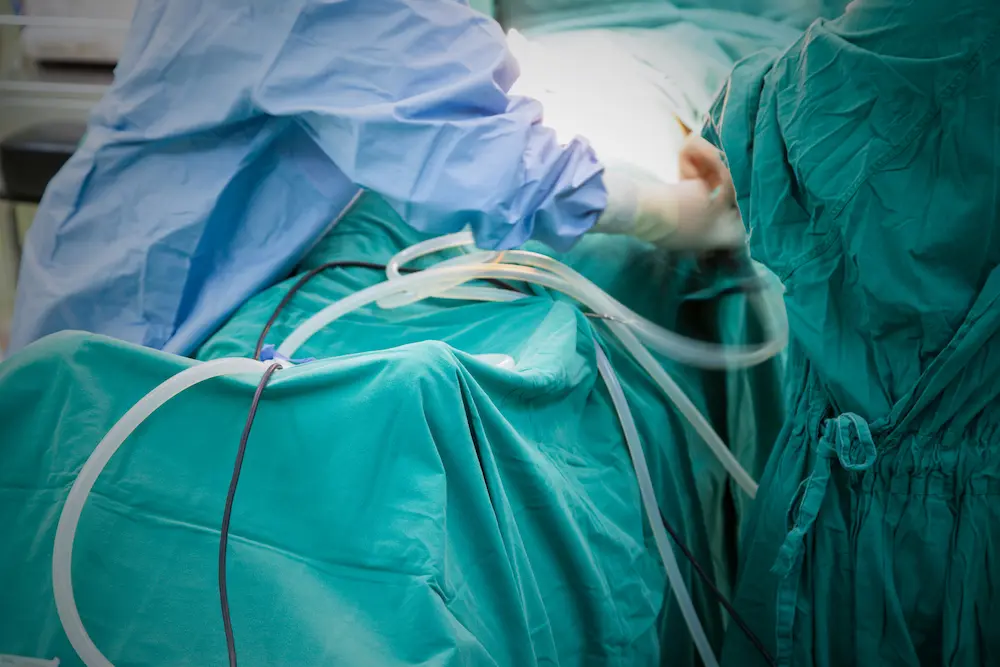Bariatric surgical procedures focus on altering the digestive tract to limit the amount of food you can consume or absorb. The first bariatric surgery designed for weight loss was performed in the 1950s, and since then, weight loss options have evolved to include multiple techniques supported by decades of data on their long-term success. As an important caveat, these procedures must be paired with dietary changes to be effective. After years of struggling with diets, exercise programs and even failed weight loss surgery, people are turning to sleeve gastrectomy or gastric sleeve surgery with BMI of Texas to find lasting weight loss success.

The gastric sleeve technique
The vertical sleeve gastrectomy, also called gastric sleeve, is a weight loss surgery option that permanently changes the size and shape of the stomach to restrict consumption. With this technique, 80 percent of the stomach is completely resected and removed from the body. Under general anesthesia, a surgeon will make several incisions and then use a laparoscope to see inside the abdomen for the remainder of the procedure. After the lower elastic portion of the stomach is removed, the remainder is left in the shape of a full sleeve that resembles a banana or a hockey stick. Specifically, the part of the stomach that connects to the esophagus and the small intestine is left intact and the lower edge is sewn shut, creating a new stomach that is stiff, tubular and narrow. The procedure usually lasts an hour or less.
Why gastric sleeve?
For the first year or so, the results of sleeve gastrectomy surgery are very similar to those of gastric bypass surgery, yet there are reasons why weight loss surgery candidates won’t consider undergoing the latter. With gastric bypass, food can reach the small intestine before saliva and stomach acids have broken it down, which can lead to “dumping syndrome” in patients who have trouble with post-surgery dietary changes. This risk of incomplete digestion and nutrient absorption can lead patients to choose gastric sleeve surgery over gastric bypass.
Another common procedure is the “lap band” technique, which involves installing a band around the upper portion of the stomach to restrict the amount of food that a patient can consume. As patients lose weight, the band is periodically expanded via a port placed under the skin. While this technique is safe and minimally invasive, it involves returning to adjust the band—which, as a foreign object in the body, may cause scarring, movement or deterioration. Weight loss surgery candidates who aren’t comfortable having a port under their skin or cannot accommodate the long-term maintenance associated with return visits for band adjustment might be more suited to gastric sleeve surgery.
Who qualifies?
Weight loss surgery patients who have tried other procedures with limited success or complications may find the gastric sleeve procedure works for them.
Unlike other procedures, gastric sleeve surgery targets the root cause of obesity—hunger—by removing most of the portion of the stomach that creates the hunger hormone ghrelin. This means patients who would typically struggle to maintain a reduced diet will have to remind themselves to eat for the first few months following a sleeve gastrectomy.
Some surgeons also prefer the gastric sleeve technique over gastric bypass for patients with a BMI over 40. Female patients who are at least 80 pounds over their goal weight and male patients who are at least 100 pounds over their goal weight can be good candidates for sleeve gastrectomy.
As an added bonus, patients who have struggled with diabetes and metabolic disease may go into remission quite rapidly following gastric sleeve surgery, as the procedure up-regulates the GLP1 hormone involved in the body’s control of glucose.
Before your surgery
Prior to the surgery, your doctor will discuss your current health, including other conditions you have and medications you are taking. If you are taking medications that suppress appetite or interrupt food absorption, your doctor may change your dosage or discontinue your prescription. Because gastric sleeve surgery is considered major surgery, you may need to discontinue certain medications and supplements for several days before the procedure, so it is important for you to list all your medications, even those not related to weight loss. Your doctor will guide you through the lifestyle changes you’ll need to make for successful recovery and weight loss.
Keep in mind that bariatric surgery is not a substitute for the lifestyle changes needed to sustain weight loss. Your doctor may ask you to restrict your caloric intake in the weeks prior to surgery or to begin an exercise program, as losing at least a little weight before your surgery will make the procedure easier and safer. Moreover, your ability to comply with lifestyle changes before surgery will speed up your recovery, aid your progress towards your goal weight and potentially reduce the risk of complications.

Recovery and long-term weight maintenance
After you wake up from surgery, you will probably experience some abdominal discomfort and dry mouth, as well as mild soreness around the incision site. Your recovery from the surgery and your resumption of a normal diet will take place on different timetables. Most patients will be discharged from the hospital in two or three days, barring complications, and although you will be encouraged to stand and walk a short distance on your own before you are discharged, you won’t be running for some weeks yet. This is consistent with other major surgeries. Many patients can return to work within one to two weeks, with some requiring modified duties or half-days for the first few weeks. Some very mild physical activity may help the healing process, but do not begin or resume activities before consulting your doctor.
Because your digestive system has been changed by the surgery, you will need to reintroduce food carefully and will spend three weeks on a liquid diet. When your doctor is confident that your recovery is progressing well, you can begin adding pureed foods, pudding, ice cream and other soft foods, adding eggs, cheese and other soft, nutrient-dense foods after a couple of weeks. About a month after your surgery, your diet will include most types of food in smaller portions than you are used to, but you won’t feel hungry now that you have a smaller stomach. Quick weight loss and lowered cravings should follow.
Your diet may permanently exclude foods high in fat and sugar, although you won’t suffer the “dumping syndrome” that occurs in individuals lacking the ability to digest certain foods. If you are very physically active, you should be able to resume eating many protein-rich foods, supplements and whole grains within a few weeks post-surgery, which makes gastric sleeve surgery a good choice for amateur athletes and anyone who wishes to maintain variety in their diet.
If you were highly active before your weight loss surgery, your return to physical activity will be more complex than with other surgeries as your stomach will be able to hold less, meaning you may need to take more frequent breaks to rehydrate. Moreover, you might not be able to drink soon after meals, which you’ll need to account for in your exercise plans. If you go for a run after breakfast, for example, you may not be able to tolerate a sports drink until afterward. Consult your doctor and a personal trainer experienced in working with clients who have undergone weight loss surgery clients to plan your new fitness routine.
In terms of high blood pressure, arthritis, diabetes, or other conditions exacerbated by a higher weight, you may find that your symptoms decrease to the point where you may not need medication in the weeks and months following your weight loss surgery. The therapeutic effect may vary and your doctor will want to monitor your progress, but many patients find that weight loss helps with more than looking good.
Gastric sleeve surgery costs
Your insurance company may cover part or all of the expenses related to weight loss surgery, although this depends upon your insurance coverage package and the network coverage of your doctors and hospital. Although out-of-pocket costs for gastric sleeve surgery can be as high as $25,000 in Los Angeles, the cash price is $10,000 here at BMI of Texas, making San Antonio an ideal choice for patients who will be funding or all of their weight loss surgery expenses. Feel free to ask us about using your HFA account for gastric sleeve surgery if your insurer does not cover certain costs.
Gastric sleeve surgery and other types of bariatric surgery may be covered for certain Medicare patients considered “morbidly obese” or with weight-related health problems. Medicaid may also cover weight loss surgery if you have a BMI of or over 35, at least one health problem attributed to your higher weight and a documented history of attempting to lose weight. In some states, Medicaid plans will cover the cost of a health club membership to help you establish a history of weight loss attempts and facilitate physical activity. Some of the insurance coverage carriers with which we work offer plans funded by Medicare or Medicaid, but if your insurer does not currently work with us, we’re happy to discuss your options, including potential financing.
Whether you are experiencing health problems due to your weight or would simply prefer a healthier body back, gastric sleeve surgery is an effective and safe option for patients who have struggled to lose weight with dietary changes and exercise alone. Contact BMI of Texas to discuss how sleeve gastrectomy can turn your constant weight loss struggle into lasting weight loss success.
You might also be interested in: Gastric Sleeve Recovery Time: What to Expect

